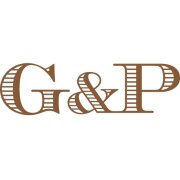Best Reinsurance Lawyers in Nuremberg
Share your needs with us, get contacted by law firms.
Free. Takes 2 min.
List of the best lawyers in Nuremberg, Germany
About Reinsurance Law in Nuremberg, Germany
Reinsurance serves as a critical component of the insurance ecosystem, both in Germany and globally. In Nuremberg - a key city in Bavaria known for its sophisticated legal and financial sectors - reinsurance involves insurance companies transferring portions of their risk portfolios to other insurers, known as reinsurers. This practice helps insurance companies manage large exposures, stabilize loss experience, and maintain financial solvency in the face of significant or unexpected claims.
Reinsurance law is governed by a mixture of EU regulations and German national legislation. Legal advice in this field is essential for both domestic insurance companies, brokers, and international reinsurers operating within the region. Understanding local rules and market practices in Nuremberg can help avoid regulatory pitfalls and optimize contractual agreements.
Why You May Need a Lawyer
There are numerous scenarios where expert legal counsel in reinsurance becomes pivotal. You may need a lawyer when:
- Drafting, reviewing, or negotiating reinsurance contracts (treaties or facultative agreements)
- Handling disputes involving claims, coverage interpretation, or payments between cedents and reinsurers
- Navigating regulatory compliance with BaFin (the Federal Financial Supervisory Authority)
- Handling cross-border transactions, including issues with international reinsurers
- Advising on mergers, acquisitions, or restructuring involving insurance or reinsurance entities
- Supporting risk management and due diligence in complex portfolios
- Dealing with insolvency cases involving either primary insurers or reinsurers
A lawyer's expertise will help safeguard your interests, ensure compliance with German and European regulations, and minimize financial and reputational risks.
Local Laws Overview
In Germany, and specifically applicable in Nuremberg, reinsurance is regulated by a combination of the Insurance Contract Act (Versicherungsvertragsgesetz, VVG), the Insurance Supervision Act (Versicherungsaufsichtsgesetz, VAG), and relevant EU regulations. Key points include:
- Authorization and Licensing: Reinsurance companies operating in Germany must be authorized and are supervised by BaFin. There are stringent capital and solvency requirements.
- Contractual Freedom: While reinsurance contracts offer flexibility, certain provisions are subject to German law, especially those concerning good faith and fair dealing.
- Claims Handling: Deadlines and procedures for reporting claims are regulated, and delays can impact reinsurance recoveries.
- Data Protection: The handling of client and claim data must align with GDPR and German data protection laws.
- Dispute Resolution: Many disputes are resolved through arbitration or German courts, with the choice of law and forum clauses playing a major role.
Regionally, Nuremberg falls under the jurisdiction of local courts (Landgericht and Oberlandesgericht) with expertise in commercial and insurance law. Practitioners here understand the interplay of local business culture with national regulations.
Frequently Asked Questions
What is reinsurance and how does it differ from regular insurance?
Reinsurance is insurance for insurers; it involves insurers passing part of their risk portfolios to another insurer (the reinsurer) to reduce the likelihood of paying large claims. Unlike retail insurance, reinsurance contracts are often complex and negotiated between businesses rather than sold to consumers.
Are reinsurance companies regulated in Germany?
Yes, they must be licensed by BaFin, which monitors financial stability, consumer protection, and legal compliance. Stringent capital and reporting requirements apply.
Do reinsurance contracts need to be written in German?
While German is often used, contracts can be drafted in English, especially if international parties are involved. However, understanding and compliance with German law remain essential.
Can foreign reinsurers operate in Nuremberg?
Yes, but they must either establish a branch office or operate under the EU passporting regime. They are subject to local licensing, regulatory, and tax rules.
What are typical disputes in reinsurance?
Common disputes concern claims payments, contract interpretation, late notice issues, and the allocation of losses. Resolving these often requires legal or arbitration proceedings.
What role does BaFin play for reinsurance in Nuremberg?
BaFin is the German regulator for financial services and insurance, overseeing the licensing, solvency, and compliant operation of reinsurers throughout Germany, including Nuremberg.
How are claims under a reinsurance contract handled?
Reinsurance contracts describe precise procedures for claims notification, documentation, and payment. Timely compliance with these clauses is vital to secure recoveries.
Can insolvency of an insurance or reinsurance company impact me?
Yes. In the event of insolvency, payment obligations can be delayed or unmet. German law and EU frameworks offer specific procedures and protections, but legal guidance is recommended.
How does data protection law affect reinsurance in Nuremberg?
All handling of personal data must comply with GDPR and German laws. This impacts how claims and contractual data are processed, especially with international reinsurers.
How do I find a qualified reinsurance lawyer in Nuremberg?
Look for law firms with experience in insurance and reinsurance law, strong credentials in commercial law, and familiarity with local and international regulations. Many reputable firms in Nuremberg offer these services.
Additional Resources
- BaFin (Bundesanstalt für Finanzdienstleistungsaufsicht): The primary regulatory body for insurance and reinsurance supervision in Germany.
- German Insurance Association (Gesamtverband der Deutschen Versicherungswirtschaft - GDV): Provides publications and resources related to insurance and reinsurance practices.
- Nuremberg Chamber of Commerce and Industry: Offers local business support and information on insurance sector regulations.
- Local law firms: Many firms in Nuremberg specialize in insurance and reinsurance law and offer initial consultations.
- European Insurance and Occupational Pensions Authority (EIOPA): For EU-wide rules affecting reinsurance operators in Germany.
Next Steps
If you require legal assistance in reinsurance in Nuremberg, Germany, consider the following approach:
- Assess your situation: Identify the specific reinsurance legal issue you are facing, whether it relates to contracts, disputes, compliance, or claims.
- Gather documentation: Collect all relevant contracts, correspondence, and evidence related to the matter.
- Research qualified lawyers: Look for specialists in reinsurance and insurance law, preferably with experience in the Nuremberg market.
- Schedule a consultation: Reach out to a few law firms or legal advisors to discuss your case and obtain an initial opinion.
- Determine your legal strategy: Based on advice, decide whether negotiation, mediation, arbitration, or litigation is the best pathway.
- Stay informed: Keep up to date on regulatory developments affecting reinsurance in Germany via official publications.
Engaging a legal expert early can help ensure that your rights and interests are fully protected in the complex field of reinsurance.
Lawzana helps you find the best lawyers and law firms in Nuremberg through a curated and pre-screened list of qualified legal professionals. Our platform offers rankings and detailed profiles of attorneys and law firms, allowing you to compare based on practice areas, including Reinsurance, experience, and client feedback.
Each profile includes a description of the firm's areas of practice, client reviews, team members and partners, year of establishment, spoken languages, office locations, contact information, social media presence, and any published articles or resources. Most firms on our platform speak English and are experienced in both local and international legal matters.
Get a quote from top-rated law firms in Nuremberg, Germany — quickly, securely, and without unnecessary hassle.
Disclaimer:
The information provided on this page is for general informational purposes only and does not constitute legal advice. While we strive to ensure the accuracy and relevance of the content, legal information may change over time, and interpretations of the law can vary. You should always consult with a qualified legal professional for advice specific to your situation.
We disclaim all liability for actions taken or not taken based on the content of this page. If you believe any information is incorrect or outdated, please contact us, and we will review and update it where appropriate.









